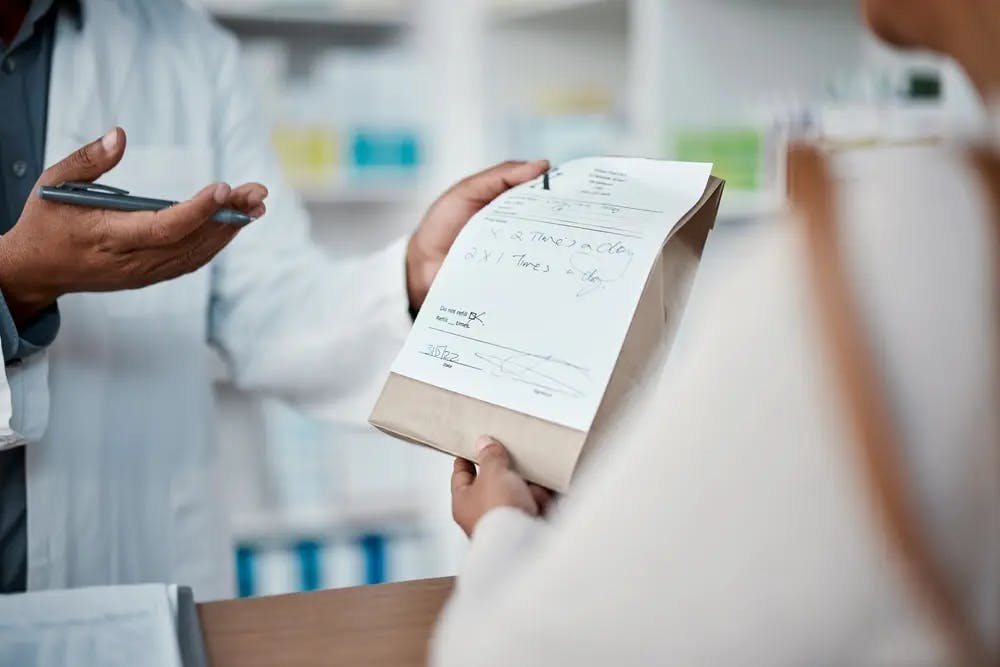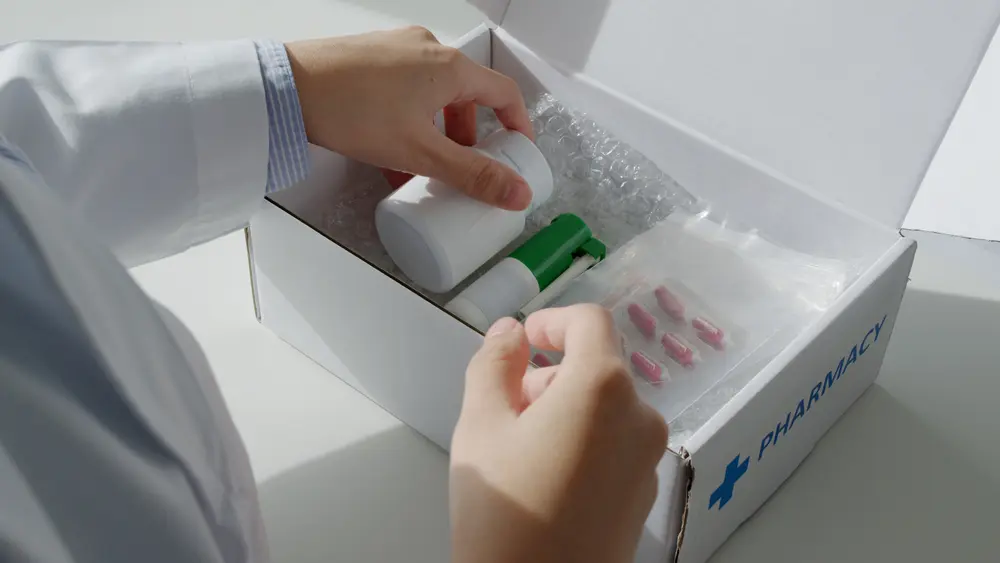Prescription Charges For Over 60s Explained

Estimated Reading Time: 5 minutes
If you’re aged 60 or over, you could be entitled to free prescriptions, along with other health-related help from the NHS. Here, we’ve explained prescription charges for over 60s, along with who else is eligible, how to check your eligibility and how to ensure you get the help you’re entitled to.
Arrange care at home
Browse the best home care in your area.
In this article:
- Can over 60s get free prescriptions?
- The Government’s stance on free prescriptions for over 60s
- Who else is eligible for free prescriptions?
- How to check if you’re eligible for free prescriptions
- How to get a refund on a prescription charge
Can Over 60s Get Free Prescriptions?
If you’re aged 60 or over in the UK, you’ll be eligible for free NHS prescriptions.
If you’re aged under 60, you could still be eligible for free or discounted prescriptions through the NHS, provided you meet certain criteria (we’ve explained this criteria in more detail later on).
People aged under 60 can also reduce the amount they pay for prescriptions by purchasing prescription pre-payment certificates for 3 or 12 months. Here, all your prescriptions will be covered during this period, regardless of how many you require.
The Government Is Keeping Free Prescriptions For Over 60s
In 2021, a consultation by the Department of Health and Social Care recommended that the prescription exemption age be raised to the State Pension age (which is currently 66), meaning people aged between 60 and 65 would no longer be eligible for free prescriptions.
However, the Government confirmed in June 2023 that the free prescription threshold wouldn’t be changed, to help older adults cope with the rising cost of living in other areas of life.
This means that free prescriptions will remain available for those who need them most, including older adults and people who receive certain means-tested benefits.
We can help you find the best home carer for you or your loved one’s care needs, including domiciliary (hourly) and live-in carers. Request a free list of home care agencies, and our care experts will match you with suitable carers with availability in your local area.
Who Else Is Eligible For Free Prescriptions?
If any of the following apply when your prescription is dispensed, you’ll be eligible for a free prescription from the NHS:
- You’re aged 60 or over
- You’re aged under 16
- You’re aged 16 to 18 and are in full-time education
- You’re pregnant or have had a baby in the last 12 months, and you have a valid maternity exemption certificate
- You have a specified medical condition, and you have a valid medical exemption certificate
- You have a physical disability that stops you from leaving your home without assistance, and you have a valid medical exemption certificate
- You have a valid war pension exemption certificate and the prescription is for your accepted disability
- You’re an NHS inpatient (if you’ve been referred to the hospital and need to stay overnight)
You’re also entitled to free prescriptions if you or your partner receive any of the following benefits:
- Income-based Jobseeker’s Allowance
- Income-related Employment and Support Allowance
- Income Support
- The Guarantee Credit part of Pension Credit
- Universal Credit (and you meet the qualifying criteria)
If you’re aged under 20 and are dependent on somebody receiving any of the above benefits, you’ll also be entitled to free prescriptions.
Finally, if you’re entitled to or named on either of the following certificates, you’ll also be entitled to free prescriptions through the NHS:
- A valid NHS tax credit exemption certificate
- A valid NHS certificate for full help with health costs (HC2)
An NHS certificate for partial help with health costs (HC3) may also entitle you to partial support and discounts when paying for prescriptions.
How to apply for a medical exemption certificate
You can apply for a medical exemption certificate (MedEx) by asking your doctor for an FP92A form and filling this in.
Somebody will need to sign this form to confirm that your statement is correct. This will usually be your GP.
This certificate will last for five years, at which point it’ll need to be renewed.
If you already have a certificate, you can check its validity through the NHS Business Services Authority website.
How To Check If You’re Eligible For Free Prescriptions
You can also use this website to see what other help with NHS costs you’re eligible for.

How To Get a Refund On a Prescription Charge
Ask the pharmacist, doctor or hospital for a refund form - this is called an FP57 form. You need to ask for this when paying for your prescription (as you can’t get one later). You then need to apply for a refund within three months of paying for the prescription.
If you receive Universal Credit and are eligible for help with health costs but you didn’t get an FP57 form, you should contact the NHS Business Services Authority to claim a refund. They evaluate cases on an individual basis.
If you paid for a prescription pre-payment certificate (PPC) and are now exempt from paying for prescriptions, you may be able to get some or all of your money back. The NHS Business Services Authority has a guide explaining how to claim a PPC fee refund.
We’re on a mission to support individuals and their loved ones throughout each stage of their later living journey. For more information, check out everything Lottie has to offer.
Frequently Asked Questions
How have prescription charges changed for 2023?
Prescription charges increased in April 2023. An inflation rate of 3.21% was applied to prescription charges, causing them to rise from £9.35 to £9.65 for every medicine or appliance dispensed.
Similarly, the cost of 3-month pre-payment certificates increased from £30.25 to £31.25, while the cost of 12-month pre-payment certificates increased from £108.10 to £111.60.
Do you pay for prescriptions while receiving the State Pension?
The Government confirmed in June 2023 that everybody aged 60 and over will continue to receive free prescriptions. The UK State Pension age is currently 66, so if you receive this, you’ll also be eligible for free prescriptions, meaning you won’t have to pay for them.
Free Care Fees & Funding Email Course
Written by our team of experts and designed to help families fund later life care in England.



